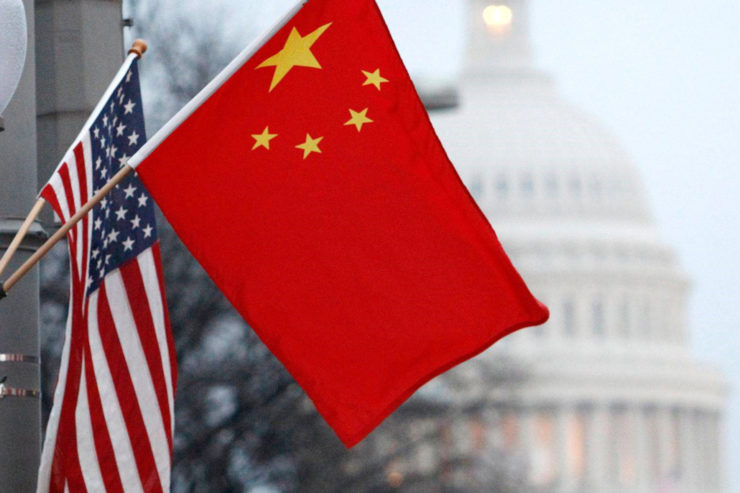
For Washington, what it needs for its China policy to work is a unified stance, both domestically and internationally. For the past few years, Washington has been trying to achieve this very objective, but it continues to prove more and more difficult than it might have initially believed. In Europe, there is a clear sense that the continent’s interests will not be best served if it pisses China off. This thinking has led many in Europe to say “no” to the US policy of “decoupling” from China. But what about the US itself? Is it fully united internally? Some recent developments indicate it is not, as key leaders in Washington continue to debate – and disagree – on the preferred course vis-à-vis Beijing.
In June, President Biden chose to call China’s Xi a “dictator.” Less than a month later, Biden’s own trade secretary flew to China to discuss bilateral ties. At the end of her trip, Ms Yellen said that trip would help to build a “resilient and productive channel of communication with China’s new economic team”, adding that “We do not see our relationship in terms of great power conflict” and that “we do not seek to decouple” our economies from each other. It looks like not all in Washington believe that Xi is a dictator and that not talking to China is the best possible course.
One might argue that many in Washington are pushing for a more pragmatic approach vis-à-vis China, or that some in Washington are forced to change their stance under pressure from Europe, where the EU remains open to discussing – and improving – its ties with Beijing. Within the US, major businesses continue to see a lot of mutual benefit in keeping trade and investment ties alive with China. They are an additional nuisance for the Biden administration’s more anti-China hawks. Whatever might be the driving cause behind such divergent – and even contradictory – policy stances coming from the same administration, it is no rocket science to see cracks appearing and expanding by the day in the overall China policy.
Reinforcing these cracks, as mentioned above, is the EU. Disagreeing clearly with the hawks of the Biden administration, EU’s foreign policy chief Josep Borrell recently said that he is for strengthening ties with China. Immediately after his call with his Chinese counterpart Wang Yi, Borrell took to X, formerly Twitter, to share that he and Yi had a “good call”, as they “discussed the upcoming Strategic Dialogue in Beijing in preparation of the EU-China Summit”, adding that “we both want to strengthen EU-China relations.”
A recent push for strengthening ties came from the EU’s trade chief when he told the media that he is going to push China to ease trade barriers. While Beijing’s trade barriers may superficially point to the existence of trade-related tensions between the two countries, this is not necessarily the case. In fact, the EU’s push for easing trade barriers is part of an overall push to increase its trade with China and reduce the trade deficit. Valdis Dombrovskis, following Borrel’s remarks, also stressed that his main objective was “to maintain good relations with the world’s second-largest economy, and he expected Beijing to raise its own concerns in sessions of the EU-China High-Level Economic and Trade Dialogue in September.”
These cracks in the overall anti-China policy is spreading worldwide. Whereas NATO is trying to establish itself in Southeast Asia and countries like Japan are keen to implement this expansion, a majority of the countries in Southeast Asia – in particular, those coalesced as The Association for Southeast Asian Nations (ASEAN) – are not supporting the West’s aggressive approach towards China. In fact, ASEAN is strategically placing itself to exploit the US-China rivalry for its own maximum advantage. This, however, is still a policy that involves keeping ties with China fully alive.
In effect, if one can summarise the state of the US policy on China, it is increasingly becoming a lost cause, as China’s inevitable rise as a superpower is making it more and more difficult – and even more unpragmatic – for the group of countries and private actors that do not see China’s rise in terms of a loss of dominance. For many of them, China’s rise represents essentially an economic opportunity that must be exploited for gains.
Nowhere is this logic more forcefully in operation than in the Middle East, a region that, until a few decades ago, was under the predominant control of the US and its European allies. Many powerful states in the Middle East – Saudi Arabia, the UAE, Qatar, and Iran – are not only diversifying away from the US/West but are already deeply invested in developing trade and investment ties with Beijing. Geoeconomics has trumped geopolitics in the Middle East.
The Sino-Middle East relations present a deadly combination for those trying to resist China’s rise to superpower status. It is an alliance that combines the Middle East’s energy wealth with China’s economic and technological expertise to bear upon the whole world and trigger the politics of shifting the centre of the world from the West to the East.
Where does it leave the US and its allies that favour “decoupling”? In a nutshell, the whole narrative of “decoupling” appears to have squeezed to a bunch of actors, which shows its possible short lifespan, leaving it unable to survive beyond these actors. What Washington and its allies against China need is, first and foremost, a policy that is able to accept China as a legitimate player in today’s global politics and shun what some describe as a racial lens to view – and interact – with China on the global level.
Salman Rafi Sheikh, research-analyst of International Relations and Pakistan’s foreign and domestic affairs, exclusively for the online magazine “New Eastern Outlook”.
